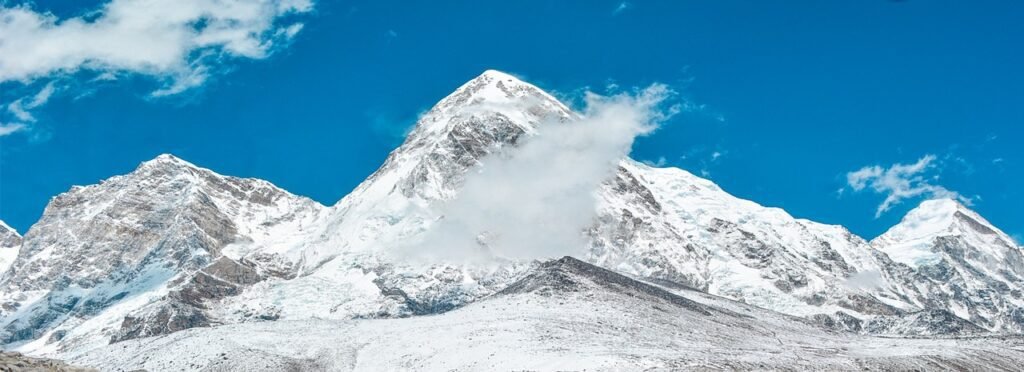Introduction
Mountaineering has long been a captivating pursuit for adventurers worldwide, but in Pakistan, it holds a special place as both a national treasure and a professional career for many. With the Karakoram Range dominating the northern landscape, housing some of the tallest and most challenging mountains on the planet, Pakistan is an essential destination for the global mountaineering community. Its awe-inspiring peaks, including K2 (the world’s second-highest mountain), Nanga Parbat, and Gasherbrum, attract climbers from around the globe, but they also nurture a thriving community of local professional mountaineers.
For Pakistani climbers, mountaineering is more than just a hobby; it is a way of life, a profession, and for many, a path to international recognition. In this blog, we will explore the history, challenges, achievements, and the current state of professional mountaineering in Pakistan, along with the growing role of local mountaineers in the global climbing arena.
Geography of Pakistan’s Mountains
Pakistan is home to some of the world’s most formidable mountain ranges, including the Karakoram, the Himalayas, the Hindu Kush, and the Pamirs. Together, these ranges form a majestic barrier of towering peaks, making Pakistan one of the most coveted mountaineering destinations in the world.
The Karakoram Range, in particular, is known for its rugged beauty and challenging climbing conditions. It houses K2, the “Savage Mountain,” which stands at 8,611 meters (28,251 feet). K2’s treacherous slopes, unpredictable weather, and high mortality rate have earned it a reputation as one of the most difficult and dangerous mountains to climb. In addition to K2, the Karakoram Range is home to four other eight-thousanders (peaks above 8,000 meters), including Gasherbrum I, Gasherbrum II, Broad Peak, and Nanga Parbat.
For Pakistani climbers, this geography offers a unique opportunity to train and develop skills in some of the most challenging conditions. The high-altitude passes, glaciers, and steep rock faces of these mountains serve as natural training grounds for those aspiring to become professional mountaineers.
History of Mountaineering in Pakistan
Mountaineering in Pakistan has a rich history, deeply intertwined with the country’s natural geography and the explorations of foreign adventurers. The early decades of the 20th century saw European mountaineers venturing into the region, mapping and attempting to scale the high peaks. In 1954, an Italian team led by Achille Compagnoni and Lino Lacedelli made history by summiting K2, marking the first successful ascent of the mountain. This achievement drew the world’s attention to Pakistan’s mountains and established the Karakoram as a key destination for global mountaineering.
Pakistani involvement in professional mountaineering, however, took time to develop. For many years, local climbers played supporting roles as porters and guides for foreign expeditions. These Sherpas and high-altitude workers gained invaluable experience but were often overshadowed by their international counterparts. However, in recent decades, Pakistani mountaineers have emerged from the shadows, taking centre stage in the world of high-altitude climbing.
One of the most significant milestones in Pakistan’s mountaineering history came in 1977, when Nazir Sabir, a native of Hunza, became the first Pakistani to summit K2. His achievement paved the way for a new generation of Pakistani climbers to pursue mountaineering professionally. Sabir’s ascent was a turning point, showing that local climbers had the skills, resilience, and determination to compete with the best in the world.
Mountaineering as a Career in Pakistan
For many Pakistanis, mountaineering is more than just a sport; it is a profession and a means of livelihood. Professional mountaineers, guides, and high-altitude porters play an essential role in supporting both local and international expeditions in the Karakoram and surrounding ranges.
Role of High-Altitude Porters
The profession of high-altitude porter (HAP) has long been a backbone of the mountaineering industry in Pakistan. These porters, often hailing from mountainous regions like Gilgit-Baltistan, possess extraordinary endurance and familiarity with high-altitude environments. They carry heavy loads, set up camps, and assist climbers during expeditions, making it possible for foreign teams to tackle the towering peaks.
For many years, porters were underpaid and received little recognition for their critical contributions to mountaineering expeditions. However, recent efforts by organizations such as the Pakistan Alpine Club and international advocacy groups have improved working conditions, wages, and recognition for high-altitude porters. Many have also begun transitioning from support roles to becoming professional climbers in their own right.
Rise of Local Mountaineers
In recent years, Pakistan has seen a surge in local climbers achieving remarkable feats on the global stage. With increased access to training, equipment, and international sponsorships, more Pakistani mountaineers are pursuing climbing as a full-time profession. These climbers not only aim to conquer their own mountains but also to establish Pakistan as a leading force in the world of mountaineering.
One such figure is Ali Sadpara, a legendary climber from the village of Sadpara in Gilgit-Baltistan. Sadpara became the first Pakistani to summit Nanga Parbat during the winter, an achievement that solidified his reputation as one of the world’s top mountaineers. His death during a winter ascent of K2 in February 2021 sent shockwaves through the climbing community, but his legacy continues to inspire young climbers across Pakistan.
Women in Professional Mountaineering
The rise of professional mountaineering in Pakistan has not been limited to men. In recent years, Pakistani women have broken barriers and taken on the challenge of high-altitude climbing. Samina Baig, for instance, became the first Pakistani woman to summit Mount Everest in 2013. Hailing from the remote village of Shimshal in Hunza, Baig’s ascent was a historic moment for women in mountaineering, and her success has inspired other Pakistani women to pursue careers in this traditionally male-dominated field.
Baig’s achievements go beyond just summiting Everest. In 2014, she and her brother Mirza Ali became the first siblings to climb seven of the highest peaks in seven continents, marking another significant milestone for Pakistani climbers.
The involvement of women in mountaineering is not just a testament to their physical prowess but also a reflection of the changing social dynamics in Pakistan. As more women take on leadership roles in various professions, mountaineering serves as a powerful symbol of gender equality and empowerment.
Challenges Faced by Professional Mountaineers in Pakistan
While Pakistan is home to some of the most awe-inspiring mountains in the world, pursuing a career in professional mountaineering is fraught with challenges. Climbers face numerous obstacles, ranging from financial constraints to environmental dangers.
- Lack of Financial Support and Sponsorship
One of the most significant barriers to professional mountaineering in Pakistan is the lack of financial support and sponsorship. Unlike in countries like Nepal or Western nations, where mountaineers can secure substantial funding through sponsorships, endorsements, and grants, many Pakistani climbers struggle to find the resources necessary for expeditions. Climbing the world’s highest peaks requires expensive equipment, permits, and logistical support, and without sufficient financial backing, even the most skilled climbers may be unable to pursue their dreams.
However, this is slowly changing as more Pakistani climbers gain international recognition. With increased media attention and growing interest from the global mountaineering community, sponsorship opportunities are beginning to emerge for talented local climbers.
2. Climate Change and Environmental Hazards
Mountaineering is inherently risky, but climate change is exacerbating the dangers faced by climbers in Pakistan. Melting glaciers, unpredictable weather patterns, and the increased frequency of avalanches have made climbing more hazardous. The Karakoram Range, in particular, is known for its treacherous conditions, with climbers often facing sudden storms and avalanches that can prove fatal.
Climbers in Pakistan must also contend with environmental degradation, such as pollution and waste left behind by expeditions. As the number of climbers visiting the region increases, so too does the strain on the fragile ecosystems of the mountains.
Future of Professional Mountaineering
Despite these challenges, the future of professional mountaineering in Pakistan looks promising. With the continued rise of local climbers, growing international interest, and increased efforts to support the mountaineering community, Pakistan is positioned to become a global leader in high-altitude climbing.
Eco-Friendly Mountaineering
As awareness of environmental issues grows, there is a concerted effort within the mountaineering community to promote eco-friendly practices. Several initiatives have been launched to reduce the environmental impact of expeditions, including waste management programs and efforts to clean up base camps and trekking routes. Pakistani climbers are increasingly leading the charge in promoting sustainable mountaineering practices, ensuring that future generations can enjoy the pristine beauty of the country’s mountains.
Training and Education
To further support the development of professional mountaineers, training programs and mountaineering schools are being established across Pakistan. These institutions aim to provide aspiring climbers with the skills, knowledge, and equipment needed to pursue high-altitude climbing as a career. The Pakistan Alpine Club plays a central role in promoting mountaineering education and organizing climbing events and competitions that encourage young climbers to hone their skills.
International Collaboration
Pakistan is also forging stronger ties with the global mountaineering community through international collaborations. Foreign climbers and teams continue to visit the country to tackle its iconic peaks, and Pakistani climbers are increasingly participating in expeditions abroad. These collaborations provide valuable opportunities for knowledge exchange, mentorship, and increased visibility for Pakistan’s climbing talent.
Conclusion
Professional mountaineering in Pakistan is a vibrant and growing field, offering climbers both immense challenges and extraordinary opportunities. With its stunning natural landscapes and towering peaks, Pakistan is a mountaineering paradise, attracting adventurers from around the world. However, it is the local climbers who are beginning to leave an indelible mark on the global mountaineering community.
As Pakistani mountaineers continue to push boundaries, break records, and lead the way in sustainable and inclusive climbing practices, the future of professional mountaineering in Pakistan looks brighter than ever. With the right support, recognition, and investment, Pakistan can solidify its place as a world leader in high-altitude climbing and inspire future generations of mountaineers to reach new heights.






206 responses
**mind vault**
mind vault is a premium cognitive support formula created for adults 45+. It’s thoughtfully designed to help maintain clear thinking